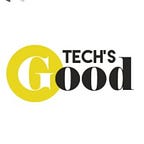Do no digital harm
‘Do no harm’ is a core humanitarian principle that is intended for the protection of beneficiaries of humanitarian assistance, and is considered the minimum standard to avoid causing inadvertent harm. This principle must accordingly be considered when looking at the application of technology in humanitarian settings.
Mobile network operators (MNOs) are playing a more significant role in the delivery of humanitarian services to provide a myriad of solutions that include but are not limited to financial services, mobile enabled utility payments, and digital identities. The GSMA Mobile for Humanitarian Innovation programme (M4H) has looked at how refugees utilise mobile services and the barriers to access in our recent research report produced with UNHCR, “The digital lives of refugees: How displaced people use mobile phones and what gets in the way”.
While protection considerations are usually made by humanitarian organisations, MNOs now need to consider their increasing role in providing services to displaced populations and consider the effect of these digital services, and their capacity to increase inequalities or cause harm.
In July and August 2019, through a partnership between GSMA M4H and the American Refugee Committee (ARC), MTN Rwanda took a step in integrating protection into their mobile money operations through the training of their mobile money agents in the humanitarian Code of Conduct and protection from sexual exploitation.
Some of the lessons highlighted by the agents themselves include how to assist a customer without bias, understanding what construes vulnerability and how to serve such a client, and how to spot and speak out on sexual abuse, amongst others. This training is intended to create awareness amongst the mobile money agents of the environments in which they operate, which are usually supporting humanitarian cash assistance via mobile money. As the direct interface between refugees, host communities and MTN Rwanda, the agents behaviour and service towards vulnerable communities is thus a direct reflection of the MNO and Code of Conduct training will have a direct impact on brand and reputation.
Jean-Paul Musugi, Manager of Mobile Money Operations at MTN Rwanda, sees agent training in the humanitarian Code of Conduct as a way of improving delivery of mobile money services to refugee populations and host communities, and as a way of strengthening the operators partnerships with humanitarian organisations.
It is clear that partnerships between humanitarian organisations and MNOs are critical to efficiently addressing the needs of vulnerable communities and in the delivery of suitable digital solutions.
Training mobile agents represents a downstream, access level application of ‘doing no harm’, and it is essential that MNOs eventually consider the humanitarian principle in the actual design of, and the subsequent roll out of, mobile-based solutions.
Following the example of MTN Rwanda, this is a call to adopt of the humanitarian Code of Conduct training by other MNOs across the globe who support vulnerable communities, as a way of doing good business and doing no harm.
This article was written by Jaki Mebur and Isaac Kwamy, and originally posted on the GSMA Mobile for Development blog.
